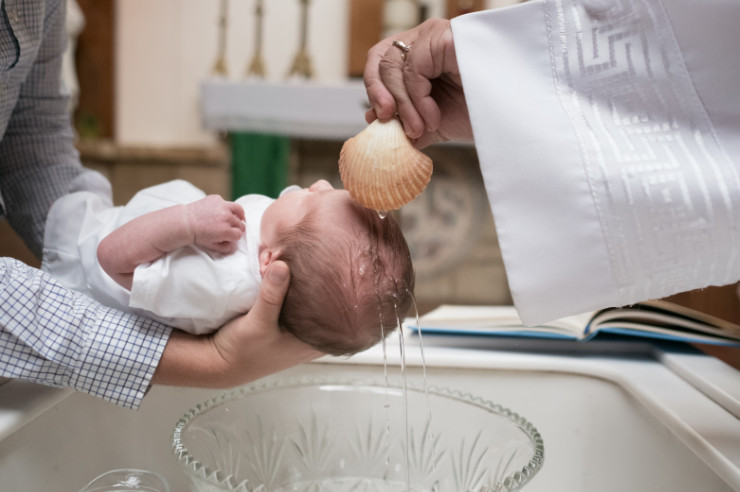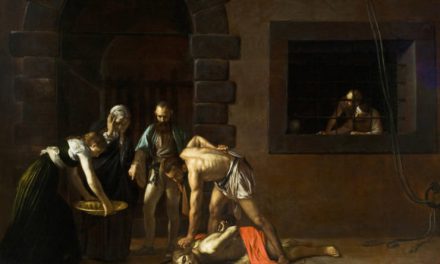Image: Photo by Josh Applegate on Unsplash
We are only two weeks into the new year, and, like other years, I have already heard many comments about how quickly Christmas “came and went” and how “soon Lent will be upon us!”
That’s what happens in this earthly life—we move through time. We mark moments in time that represent important events. Time is one of the essential elements by which we measure our lives. The passing birthdays and anniversaries, major news events, historical memorials, seasons of the year—all provide a rhythm to our lives.
LITURGICAL SEASONS AND ORDINARY TIME
The same is true in our liturgy. This most important work of the Family of God is also marked by seasons and celebrations. The liturgical season of Christmas came to an end with the celebration of the Feast of the Baptism of the Lord on Sunday, January 12th. And now we are in Ordinary Time, the longest “season” of the Church’s liturgical year.
Ordinary Time comprises two parts of the liturgical year, separated by the Lenten and Easter seasons. Each year, Ordinary Time begins on the Monday following the first Sunday after January 6th.
In most years, this first Sunday after January 6th is the Feast of the Baptism of the Lord. However, in those countries where Epiphany is transferred to the Sunday between January 2nd and January 8th, and when Epiphany is celebrated on January 7th or 8th, the Feast of the Baptism of the Lord is celebrated on the following day—what would usually be Monday of the First Week of Ordinary Time. Confusing? Yes, so there is no need to re-read this paragraph!
Ordinary Time continues through the Tuesday before Ash Wednesday. Ash Wednesday begins the observance of the Lenten Season. Ordinary Time resumes on the Monday following Pentecost and continues until the start of first Vespers (Evening Prayer I) of the First Sunday of Advent.
CELEBRATING CHRIST THROUGH THE YEAR
Before we can look specifically to the meaning of Ordinary Time, we need to know something of the way the Church celebrates the mystery of Christ during each liturgical year.
“Christ’s saving work is celebrated in sacred memory by the Church on fixed days throughout the year. Each week on the day called the Lord’s Day the Church commemorates the Lord’s resurrection. Once a year at Easter the Church honors this resurrection and passion with the utmost solemnity. In fact through the yearly cycle the Church unfolds the entire mystery of Christ and keeps the anniversaries of the saints.
“During the different seasons of the liturgical year, the Church, in accord with traditional discipline, carries out the formation of the faithful by means of devotional practices, both interior and exterior, instruction, and works of penance and mercy. “ (General Norms of the Liturgical Year and Calendar, Chapter 1.1)
The Church’s liturgical year begins with Evening Prayer I of the First Sunday of Advent.
The seasons of the Church’s liturgical year that celebrate a specific aspect of the mystery of Christ’s life and mission are Advent, Christmas, Lent, the Easter Triduum and Easter.
The remaining 33 or 34 weeks (depending on the year) of the yearly cycle make up Ordinary Time.
During Ordinary Time, as the days progress through the year, the Church celebrates the fullness of the mystery of Christ, especially on Sundays. Unlike those seasons where special focus is given to:
- the coming of Christ (Advent),
- the birth of Christ (Christmas),
- the preparation for the Passion and Death of Christ (Lent), and
- the Resurrection of Christ (Easter),
Ordinary Time recalls the events and mystery of Christ’s life in their totality.
It may have seemed to you at times, that this time is, well, ordinary; in the sense that it is not as important. But that is not so. Prior to the new missal that followed Vatican II, these days were referred to as related to Sundays after Epiphany and Sundays after Pentecost. This time is called Tempus per annum, “time through the year.” It is from this that we render in English, Ordinary Time. Rather than meaning unimportant, it means ordered, as in Ordered Time.
FIVE WAYS TO EFFECTIVELY OBSERVE ORDINARY TIME
Ordinary Time, then, is also a time during which we can grow closer to the Lord and deepen our spiritual lives. Here are five practical ideas to get the most out of our observance of Ordinary Time. These are things we can do any time, but let’s use them to renew our commitment to Christ throughout the year.
- Surrender to Christ—There is nothing we can do to be saved or to progress in the spiritual life except by Christ. Begin each new day by surrendering yourself to Him and His Will. Replace the habit of pride with the practice of humility, trusting in the Lord.
- Live in a Sacramental life—We can make no progress in the spiritual life if we are not in a state of sanctifying grace. Those who believed and were baptized were freed of sin and its eternal punishment. They were justified by Christ’s grace and said to be in a state of sanctifying grace. If they have not knowingly and freely committed a mortal sin, they remain so. If you are not in a state of sanctifying grace, you need to be. If you are not baptized, seek to be baptized in the Catholic Church. If you are baptized, but have committed a mortal sin, that sin needs to be confessed in the Sacrament of Reconciliation. Regularly and actively participate in the sacraments, particularly Holy Mass.
- Develop a daily prayer habit—If we love someone, we desire to be with that person. The same is true if we love God. Prayer is how we spend time with God. Commit to pray daily prayers of Adoration, Petition, Intercession, Thanksgiving and Praise. Devotionals, such as the Rosary, and liturgy, such as the Divine Office, are great practices to assist you.
- Meditate on the Sunday Mass Readings—Spend time each week prayerfully reading and thinking about the coming Sunday’s Mass readings—what they mean and how they apply to your life. The Magnificat is a wonderful publication to help you do this.
- Be Christ to Others—Jesus Christ came not to be served, but to serve. He calls His followers to do the same. We cannot claim to follow Christ if we do not serve those people He places in our daily lives. Service always requires us to be Christ to those around us, but we are also called to serve those we do not easily recognize. Widen your outreach this year. In what way can you help others? Who can you serve? Take these questions to daily prayer and ask Jesus to show you those in need for whom you can make a difference. Then get on with the Lord’s good work.
The celebrations and seasons of the Liturgical Calendar, including Ordinary Time, along with all the other occasions and event that mark our passage through time, should serve to remind us that we are not accidents of nature, but rational beings create by and loved of God who made us for a high purpose. Let us take comfort and be inspired by this knowledge and seek always to give Glory, Praise and Honor to our God!
Into the deep…














